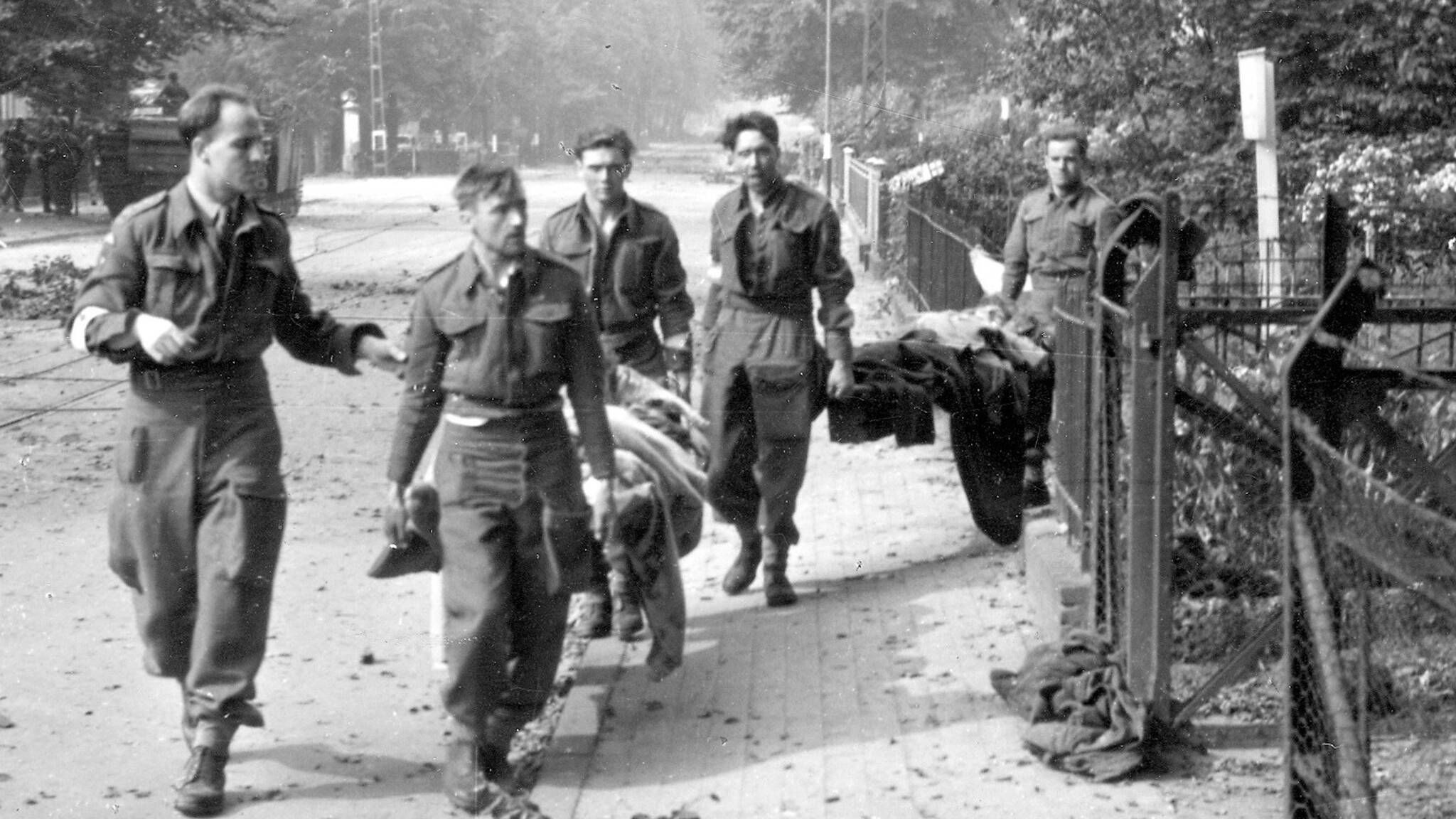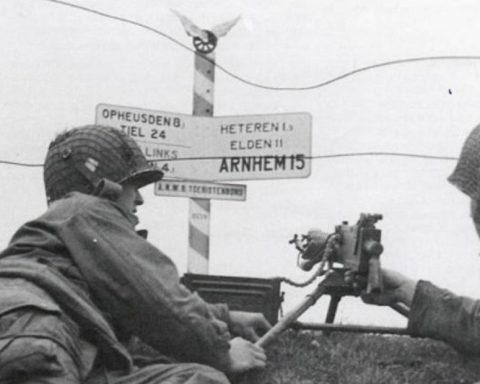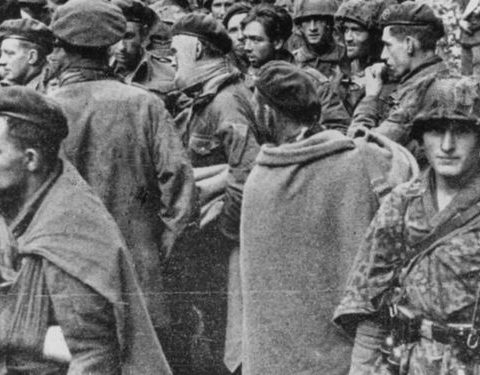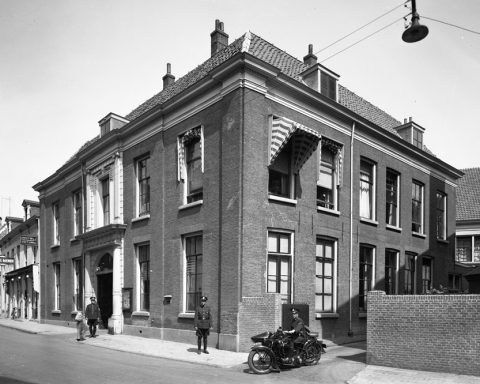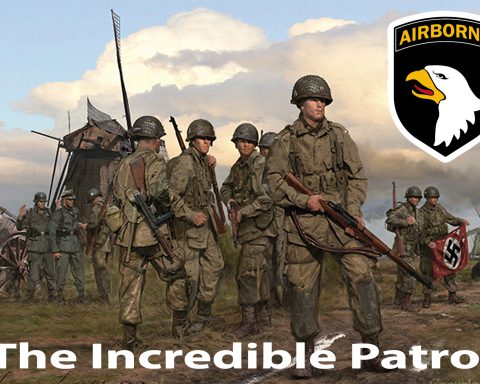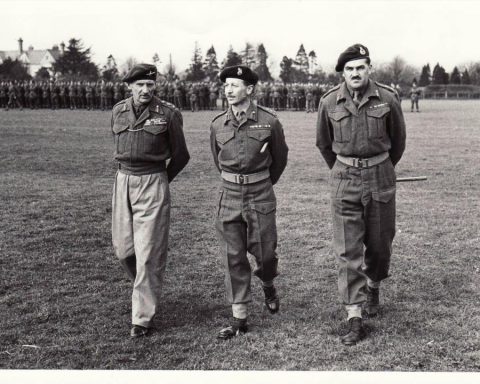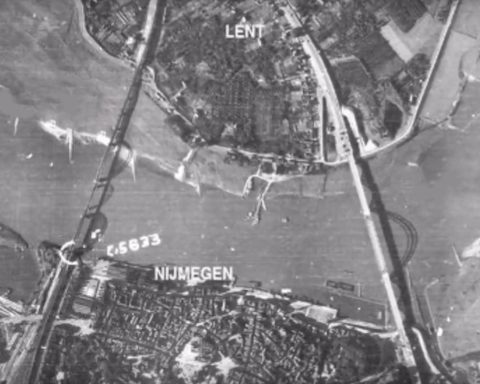At the end of 1944, 26-year-old teacher Nel Stuij was closely involved in the escape of a number of wounded British soldiers who remained in occupied territory after the Battle of Arnhem. Just before her death in 2012, she wrote down her war memories.
“We just did what had to be done.”
“When we heard that paratroopers had landed near Arnhem, we laughed and we cried. The crying took over the next ten days. The bridge at Arnhem was not captured and there were an unimaginable number of dead and wounded.
My personal story begins with those injured. Quite a few injured people had been taken to the Anthonius hospital in Utrecht.
In early October 1944, the hospital’s Electrical Chief asked: “Do you know anyone who would like to help prisoners escape from the hospital?”
That became my brother, his friend Berthold and later me.
The plan worked like this: a nurse visited the beds of the wounded who were able to walk.
“Do you want to run? It can be arranged.”
There were three who said yes. On October 6 the time had come.
They were told to go to the toilet in the hallway around six o’clock inconspicuously and one by one. There were two doors next to each other. One for the toilet. The other door was to the potato cellar. So in there.
At the back of the basement were the heating pipes that ran under the floor of the hospital. Lying on those tubes, they had to pull themselves forward until they came to a door again. Blue overalls were ready there, which they had to put on over their uniforms. Then came the most dangerous moment.
They had to open a door that led to a courtyard. They had to cross the courtyard to two men who “happened” to be walking there. That was my brother and Berthold. They walked through the outside gate with them and left the hospital on the Rembrandtkade.
There were bicycles there. Together they cycled past a German sentry on the corner. Everything went fine. Two of the three Britons went to Sweelinckstraat. The third, Bill Prince from Manchester, went to Berthold’s brother-in-law in Parkstraat.
On October 7 and 8 there was a tremendous raid in Utrecht. The Germans came house to house to pick up men and boys to work in Germany. Berthold’s brother-in-law fled to his father-in-law and that poor Englishman was alone in the house. It later turned out that he was terrified because of the banging on the door and the noise on the street.
Then I was called in. First to Berthold’s house, where Berthold was now again. He could say nothing other than: “That man has to go, that man has to go. Now. Immediately.”
It became too dangerous anyway, so all three were taken to Ede by bike. Around Ede was the gathering place of all refugees.
Every now and then the Germans announced that they had repulsed another major Allied attack across the Rhine. They came in boats from the other side. But it was exactly the other way around. When there was another large group of escaped soldiers, they went in boats to the Allied lines. That did not always go unnoticed and then shots were fired.
[The largest escape of British paratroopers was Operation Pegasus I, when a total of 130 Allied soldiers reached the Allies via the Rhine. You can read that story here: Operation Pegasus: the successful escape of 130 stranded British soldiers ]
About a week after the three Englishmen had left, they would try it at the same time with a large group. Lodging was arranged in advance. I got a tall Scotsman: Jack Wiseman. Jack was married and hoped to become a father in January 1945.
Armed tight, as if we were a couple in love, I walked with him across the Leidsekade. He could have touched the Germans in the railway tunnel. Later he told me that he had never been so close to a German.
He was a tank commander and he had been shot down during Operation Market Garden in North Brabant. He and one of his tank crew had left the tank to go exploring. They made a mistake back into the street and then ran into Germans.
They fled, but the Germans fired. He had a shot in the back. The other was hit in the stomach and died on the spot.
I took the Scot to my sister’s house. We had barely arrived when my brother arrived with the second soldier. His name was Leonard King and he was from Leeds. Jack and Leonard stayed at their hiding place for three weeks before they were also taken to Ede.
On November 14 they left, dressed as civilians with men’s clothing that we had gotten from everywhere. We immediately arranged the clothes, because as soon as it was dark, Jack and Leonard came to me together with my sister. I lived a five minute walk from them.
We had a large conservatory and a large living room where the piano. While I was being tutored by Jack with a pinch cat, I played English songs I knew on the piano. We just had a lot of fun. I also learned English very quickly.
I made another mistake when I said “Oh Yes” to a German who asked me something at the railway line.
He started laughing loudly and said to his buddy: “Did you hear that? She thinks she’s already talking to a Tommy.”
I laughed along and said: “Well, I learned three foreign languages and then you sometimes make mistakes. I also speak German as you should.”
When the English left after three weeks, we of course did not hear what had happened next. After the liberation I went to the Town Mayor, told him what had happened and asked if he would send a letter to England for me. Ordinary letter traffic was not yet possible at that time.
He said there was nothing he could do and that I should be patient. I kept pushing then he said, “To please you, I’m going to do something that is strictly forbidden.” He grabbed a service envelope and put my letter in it.
I had sent a letter to Mrs. Wiseman, Jack’s wife. In time I got an answer. She wrote that she was very shocked by my letter. At first she had only received news that he had been taken prisoner of war and then nothing for a long time. Later she received word that Jack had died of dysteria in a prisoner of war camp two days after the liberation.
She did not know that he had escaped to the Netherlands, what I had written to her and would never have known if I had not written to her. I visited her in 1947 and we have been friends ever since. She is now 86.
Later I heard from Leonard King what had happened on the Veluwe.
With a few hundred Englishmen they walked across the heath to the Rhine. A German sentry heard a suspicious noise and shot into the air. Some Englishmen panicked and fired back.
The German brought reinforcements and a major firefight ensued. Even more dead and injured. A number of Englishmen managed to escape. Leonard King was captured again with many others.
He ended up in Saxony. As the Russians came closer, the camp he was in was evacuated. All prisoners had to walk for days in the freezing cold. They survived on raw potatoes that lay here and there in the fields.
The sweater I gave him helped him against the cold, he said later.
In 1950 he came to the Netherlands with his wife. My husband and I took him to Ede and Arnhem. He remembered exactly where he had been shot. That was far from the bridge.
I could have applied for a resistance cross, but I didn’t. We just did what had to be done. There was only one thing that interested us and that was being free. Just live.
(Thanks to Fred Stuij. The above story comes from the Stuij Family Archives, which is managed by him.)

